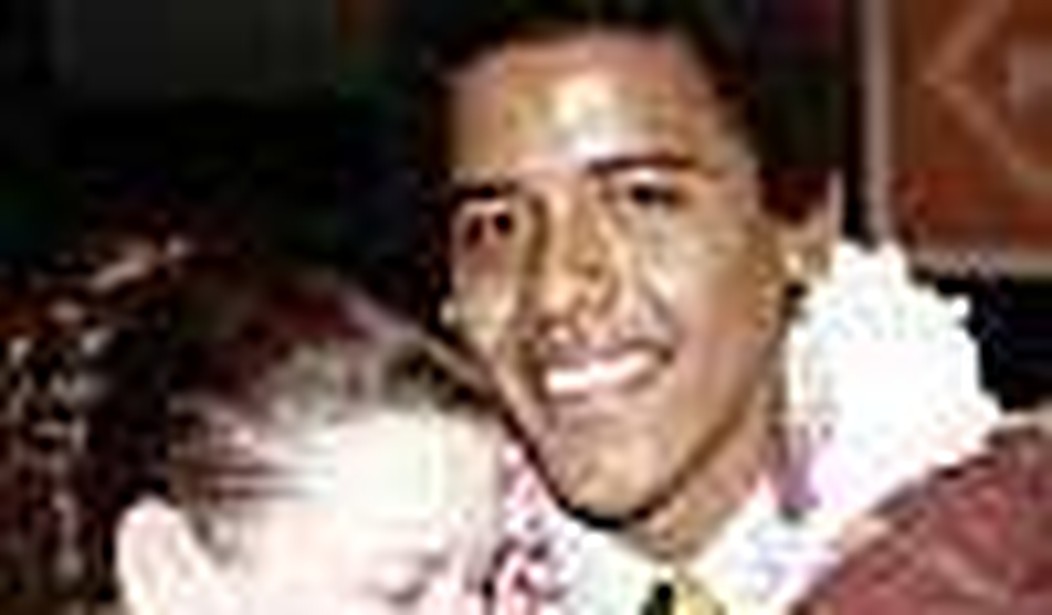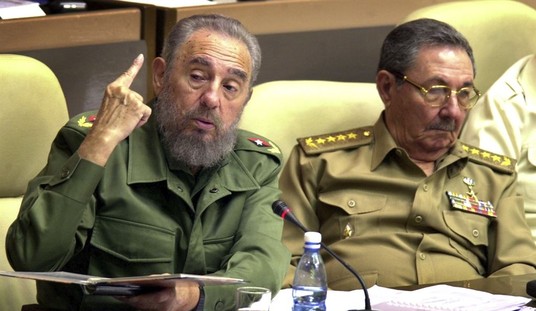It is perhaps too much to expect genuineness from our candidates for high office. Since the founding of the republic, candidates for president have presented a version of themselves to the voter their own mothers would hardly recognize. Even Washington was not immune from this kind of image-building.
Chairing the Constitutional Convention in 1787, George Washington sat stoically while debate raged about what powers to grant the chief executive. Some members wanted nothing to do with creating the office of president, believing it smacked of monarchy. Others saw a strong executive as a necessity — a head of state the nation could rally to in times of crisis.
Despite not saying a word, Washington was dominating the debate simply because everyone in the hall knew who would be the first president. There was no question in anyone’s mind that they were enumerating powers that would be exercised by the silent, heroic figure in front of them. Washington cultivated this image of hero/statesman. He was still the toast of Europe and worshiped at home after having shocked everyone by resigning his commission rather than doing what victorious generals usually did — ride in on a white charger and set himself up as a king or dictator.
Washington’s great biographer James Flexner writes how carefully Washington nurtured and promoted this image of himself despite being beset by self doubt and worry that he wouldn’t be remembered by history quite as kindly as his contemporaries viewed him. In truth, the public face of Washington was as different from the real man as almost any politician we know today.
Lincoln promoted himself as a rail splitting, log cabin living backwoodsman despite hating manual labor and schooling himself to get away from the drudgery of life on the frontier.
Teddy Roosevelt was a reckless soldier, so hungry for a glorious victory in the Spanish-American War that he began the charge up San Juan Hill without orders. He lost more men to heat exhaustion than to Spanish bullets and other officers played a more important role in taking the heights, but it was TR, with a genius for self-promotion, who made himself a hero along with his regiment with the catchy name of the “Rough Riders” (they were actually dismounted cavalry and Roosevelt was the only one on a horse when they reached the summit).
Ronald Reagan used to ride horses using English tack, dressed in hip boots and jodhpurs, looking quite handsome but hardly like a western hero. Reagan’s handlers were horrified that he was about to meet the press looking like an English dandy rather than John Wayne. From then on, Reagan was never seen in jodhpurs again.
Today, the candidates have a team of image makers — people who are responsible for creating a portrait of the candidate for the TV cameras. Each stop on the campaign is carefully stage-managed with the proper background and other visuals. Each ad is pored over frame by frame, line by line, until the exact effect is achieved. Speeches are written to appeal to specific groups using language tested and retested on focus groups to gauge the emotional reaction of the audience.
It’s about as genuine as Pamela Anderson’s cleavage.
Except that authenticity intruded yesterday on this little Kabuki dance we call a presidential campaign. With less than two weeks to go in the campaign and the race still considered close by many, Barack Obama is flying 5,000 miles to Hawaii in order to visit the woman who took care of him and taught him so much during his formative years.
Madelyn Payne Dunham, Obama’s maternal grandmother, lies seriously ill in her home following what the Honolulu Advertiser has learned was a fall resulting in a broken hip several weeks ago. The 85 year old former bank vice president suffers from osteoporosis and has weakened considerably over the last few months. She was discharged from the hospital early this week and by some reports, is sinking.
There is something radically human in this move by Obama. Apparently for some candidates, there are more important things than winning the presidency. Two days (at least) lost on the campaign trail with less than two weeks to go are two days that Obama will never get back. One can imagine the enormous difficulty in making this decision. The tug of war in his heart between the woman who instilled the values and qualities that make him who he is today versus the idea that the ending can be glimpsed to the longest, hardest, most exhausting journey of his life must have torn him nearly in two. No doubt he is still beset with doubts as the plane wings its way toward Hawaii.
There doesn’t appear to be any precedent for it, at least in modern times. But if you’ve ever seen Obama’s face take on an affectionate glow and his voice quaver whenever he speaks of his grandmother, you know that there is genuine love and affection for this remarkable woman and that, in that context, perhaps the presidency wouldn’t be worth winning if he couldn’t say goodbye to “Toot.”
“Remarkable” is an understatement to describe Madelyn Dunham. She is of prairie stock, born in Kansas, moving frequently until her gregarious husband Stanley got a good job offer at a furniture store in Hawaii. She went to work at a bank and within a few years had risen to the position of Vice President — an unheard of accomplishment in an age when women rarely made it beyond the secretarial pool.
By all accounts, she was a rock — firm but fair with her employees and displaying solid, Midwestern values of self reliance, personal responsibility, and love of country. Obama has credited her with inculcating those qualities in him:
Obama, who calls Dunham “Toot,” short for “Tutu,” credits her with instilling him with the values she grew up with in small-town Kansas. Obama lived with her and his grandfather Stanley Dunham for several years while growing up on Oahu.
In a campaign ad this year, Obama described his grandmother as the daughter of a Midwestern oil company clerk who “taught me values straight from the Kansas heartland” – things like “accountability and self-reliance. Love of country. Working hard without making excuses. Treating your neighbor as you’d like to be treated.”
He also described her as a “typical white person” who feared the approach of male black strangers on the street. In his speech on race in America where he defended his long, close relationship with the radical preacher Jeremiah Wright, Obama seemed to be criticizing his grandmother for her views on race:
I can no more disown him than I can my white grandmother – a woman who helped raise me, a woman who sacrificed again and again for me, a woman who loves me as much as she loves anything in this world, but a woman who once confessed her fear of black men who passed by her on the street, and who on more than one occasion has uttered racial or ethnic stereotypes that made me cringe.
Later, he tried clarifying his thoughts but only ended up muddying the waters further:
Well, what I meant really was that some of the fears of street crime and some of the stereotypes that go along with that were responses that I think many people feel. She’s not extraordinary in that regard. She is somebody that I love as much as anybody. I mean, she has literally helped to raise me. But those are fears that are embedded in our culture, and embedded in our society, and even within our own families, even within a family like mine that is diverse
I am not sure why Obama used his grandmother as an example of someone who harbors what can only be described as bigoted feelings. No one knows what Obama was thinking. Was it political calculation? Or perhaps an attempt to universalize his grandmother’s feelings about race in order to make the point that no one escapes the stain of bigotry in America?
Whatever the reason he was roundly criticized for it. And I hardly think Madelyn Dunham thought much of the idea of being dragged into the presidential race in such a manner. But Obama visited her several times in August when he was in Hawaii so one assumes whatever bad feelings that lingered were probably dealt with the way families usually deal with such things.
American presidential campaigns are such sordid affairs. During each one that I can recall going back to 1964, commentators bemoan the idea that the tone can’t get any lower. Each time, they are wrong. The proliferation of surrogates and partisans on the internet has guaranteed a low blow every day delivered by someone. Accusations of racism, of socialism, of ageism fly through the airwaves and across our monitors, befouling the campaign with their deleterious effect on dialogue. There is no such thing as context when words and phrases are twisted and pulled and pounded until they can make the candidate seem as if he is advocating mass murder or surrender to an enemy.
And into this sickening stench, a tiny breath of authentic human emotion has intruded to remind us that the candidates are, after all, as human as the next man and that even with stakes that can get no higher, there is room for the care and feeding of the human heart.
I have no use for Barack Obama’s politics. But I am glad he has shown us that beyond the carefully cultivated image, the fakery, and the folderol, he has a soul.










Join the conversation as a VIP Member